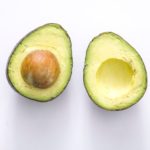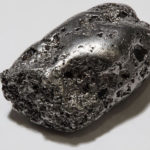15 interesting facts about acids
 A variety of acids are used in a wide variety of industries. They are found in many food products, they are used for the production of various household items, in the fine equipment and heavy metallurgy – to say nothing, they have found application everywhere in general. The properties of acids have been known to mankind for a long time, and over the past centuries and millennia, people have far advanced in their study.
A variety of acids are used in a wide variety of industries. They are found in many food products, they are used for the production of various household items, in the fine equipment and heavy metallurgy – to say nothing, they have found application everywhere in general. The properties of acids have been known to mankind for a long time, and over the past centuries and millennia, people have far advanced in their study.
Citric acid is so called because it is obtained mainly from lemons. But not only of them – it is economically profitable to produce it from special mold.
Lactic acid, which is produced in small quantities in the organisms of warm-blooded mammals, attracts mosquitoes and other blood-sucking insects.
Ants are able to secrete caustic acid, which serves two purposes at once – protecting their own nests and preventing relatives. Therefore, it was called ant.
Sulfuric acid is indispensable in the processing of various minerals and metals. The electrolyte for lead-acid batteries is also made on its basis.
Phosphoric acid is part of the world-wide Coca-Cola and other drinks.
Imperial vodka is a mixture of hydrochloric and nitric acids, which differs from other acids in that it can dissolve noble metals – platinum, gold and others. For this, she got her name.
In Italy, on the island of Sicily, there is Lake Death, the water in which is so saturated with acid coming from two sources located at the bottom that it kills all life.
The healthy person’s gastric juice contains enough hydrochloric acid to completely dissolve a small piece of metal in six to seven days. That is why the walls of the stomach are constantly updated with new tissues – due to the caustic environment.
Sulfuric acid was discovered in Ancient Persia by the scientist Abubeker al-Rezi about a thousand years ago.
The acidity of the compounds is measured on a 14-point scale. The neutral mark corresponding to distilled water is 7. The numbers more than seven indicate the acidity of the medium, and below – its alkalinity.
Oxygen got its name because of the theory put forward in the 18th century that it is part of all acids. The theory was subsequently refuted, but the name of the chemical element took root.
Acetic acid became the first acid discovered by mankind.
Vinegar itself was discovered by chance. The process of making wine did not go as intended, and the result was vinegar.
The production of 1 ton of citric acid requires about 40 tons of lemons.
Acids are not only liquid. Some of them, in particular boric acid, can exist in solid form.



























